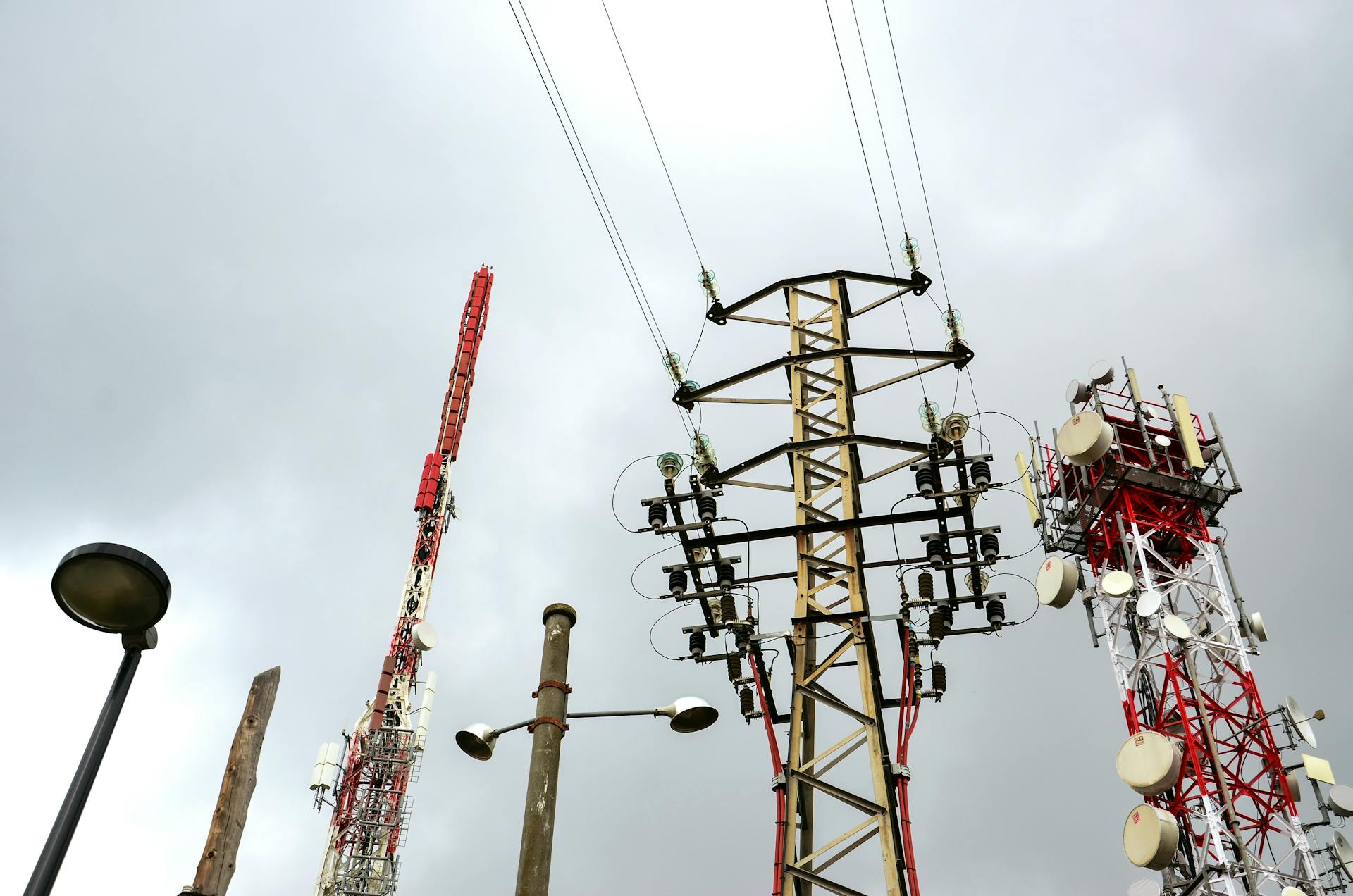
The Congolese Posts and Telecommunications Corporation (Société des Postes et Télécommunications du Congo, SPTC) faces numerous challenges and opportunities in its operations. One of the main challenges is the lack of infrastructure, particularly in rural areas.
The SPTC has a monopoly on postal services, which can be both a blessing and a curse. On one hand, it allows the corporation to provide universal access to postal services, but on the other hand, it can limit competition and innovation. The corporation has a long history, dating back to 1888, and has undergone several transformations over the years.
Despite the challenges, the SPTC has made significant progress in recent years, with the introduction of new technologies and services. The corporation has also expanded its services to include telecommunications, providing internet and mobile phone services to the public. However, there is still much work to be done to improve the quality and reach of these services.
Lack of Infrastructure
The land-line telephone network in the DRC is almost completely depleted due to years of negligence under the Mobutu dictatorship and the subsequent destruction of infrastructure during the two wars.
Only 2.54% of respondents in Kinshasa say they own and use a fixed-line telephone, according to a survey conducted by the Dynamique Multisectorielle pour les TIC (DMTIC).
The OCPT, responsible for the telecommunications network, has yet to announce any plans to rehabilitate it.
There is no national fibre optic backbone in the country, and the absence of a broadband connection is the main infrastructural obstacle to the proliferation of ICTs.
Out of 25 ISPs in the DRC, all use satellite, and only one (Congo Korea Telecom) uses fibre optic to connect its offices to its clients in Kinshasa.
Three backbone projects have been proposed by the private sector: Siemens to install a national telecommunications network, Ericsson to install a network in Kinshasa, and the West Africa Festoon submarine cable system (WAFS) to create an access point to the SAT3 cable.
The government has not committed itself to any of these projects, despite the importance of infrastructure development.
On 29 November 2006, the government officially signed the broadband protocol for the New Partnership for Africa’s Development (NEPAD), committing to pay USD 2 million before March 2007 to join the Eastern Africa Submarine Cable System (EASSy) project.
Operator Licensing and Legal Framework
The Congolese Posts and Telecommunications Corporation is governed by a clear legal framework. The Framework Law n ° 013/2002 of 16 October 2002 on telecommunications in the DRC is the foundation of this framework.
The law establishes two structures to manage the ICT sector: the Ministry of Posts and Telecommunications and the Regulatory Authority. The Regulatory Authority of Post and Telecommunications of Congo “ARPTC” is responsible for overseeing the sector.
Several conventions and instruments have been signed by the DRC to regulate the telecommunications sector, including the convention of the UIT, the Malouga - Torremolinos convention (1973), and the Convention of the African Postal Union.

To operate in the telecommunication industry, you'll need to obtain a license specifying frequency. This license is prepared by the ARPTC and approved by the Ministry of Post, Telephone and Telecommunication.
To create a business as a limited liability company, you'll need to follow the main procedures outlined by the ARPTC. This includes obtaining a license specifying frequency.
Internet Service Providers must submit an application to the ARTC to operate an Internet network. Meeting the ARTC licensing requirements is also essential for ISPs.
The Ministry of Post, Telephone and Telecommunication is responsible for publishing the approved license and specifications in the official journal. This ensures transparency and accountability in the licensing process.
Government Initiatives
The Congolese Government is taking steps to strengthen the Telecom sector, which is a great move for the country's digital development.
The reform of public enterprises, such as Congo Post and Savings Company (Sopéco) and Congo Télécom, is underway. These reforms aim to improve the management style and leadership of these companies.

The Minister in charge of Posts, Telecommunications and the Digital Economy, Léon IBombo, has acknowledged the serious concerns surrounding Sopéco, which is on the verge of bankruptcy.
The company owes its workers over twenty months of unpaid wages and social contributions. This situation is causing social unrest within the company.
The government is advocating for dialogue to preserve social peace within Sopéco. The Minister has also promised to operationalize the Universal Postal Service Access Fund to help Sopéco provide service throughout the national territory.
This fund will also support the training of personnel in digital professions and the inventory of Sopéco's heritage to mobilize necessary financial resources.
Suggestion: Post Office Packet Service
Public-Private Partnerships
The Congolese Posts and Telecommunications Corporation (SCPT) has been actively exploring public-private partnerships to enhance its services and reach. This is evident in its partnership with Flash, which will allow SCPT to offer universal money transfer services and 35 other value-added services.
The partnership with Flash is a significant step towards integrating new financial products and value-added services into SCPT's large network of 360 postal agencies. SCPT is now able to offer a multitude of services, including international financial messaging with Western Union and MoneyGram.

The government is also taking steps to strengthen the telecom sector through public-private partnerships. The procurement process for the development of untapped strands of aerial optical fiber through a public-private partnership is ongoing, and the national telecom infrastructure policy has two components: national telecommunications coverage provided by Congo Telecom and the Cab project, financed by partners.
The government's commitment to creating an environment that fosters digital development is evident in the leasing of over 2,000 telecom towers in Kinshasa by Airtel-Helios Towers partnership. This partnership is expected to enhance network coverage in the capital.
The Congolese government is working to introduce a pro-digital regulatory framework focusing on acquiring specialized skills, promoting local innovations, and supporting youth entrepreneurship. This is a crucial step towards promoting digital development and economic growth in the country.
Universal Service
The Democratic Republic of Congo (DRC) has made significant efforts to improve connectivity across the country.
In mid-2017, the government announced the launch of a fund for access and universal service to bridge the gap in rural and landlocked areas.

The fund requires operators to contribute 2% of their turnover to provide communications infrastructure and services.
Léon Juste Ibombo, Minister of Telecommunications and the Digital Economy, emphasized that the quality of services is a non-negotiable requirement for consumers.
Consumers must have a normal and adequate voice and data service, which is a basic expectation for a purchased service.
Requirements and Fees
To operate in the telecommunication industry, you'll need to create a business as a limited liability company. This is a requirement to get started.
The Authority of Regulation of Posts and Telecommunications (ARPTC) prepares the license and specifications, which are then approved and signed by the Ministry of Post, Telephone and Telecommunication. This process ensures that all necessary requirements are met.
Obtaining a license specifying frequency is a crucial step in operating in the telecommunication industry. This license is essential for setting up any telecommunication services.
To operate an Internet network, you'll need to submit an application to the ARTC. This is the first step in meeting the ARTC licensing requirements.
Licensing fees are also a necessary part of the process. The license and specifications are published in the official journal after approval and signing by the Ministry of Post, Telephone and Telecommunication.
Frequently Asked Questions
What telecommunications companies are in Congo?
Several telecommunications companies operate in Congo, including Vodacom Congo, Bharti Airtel, Millicom, and Orange Congo, among others. These companies provide a range of services, including mobile network coverage, internet access, and fixed-line telephony.
Sources
- https://giswatch.org/en/country-report/civil-society-participation/congo-democratic-republic-drc
- https://policy.communitynetworks.group/country-profiles/drc
- https://www.ecofinagency.com/public-management/0707-42818-drc-the-congolese-post-in-the-era-of-public-private-partnership
- https://cemac-eco.finance/congolese-government-plans-to-strengthen-the-telecom-sector/
- https://bankable.africa/en/business-climate/2712-647-drc-over-2-000-telecom-towers-leased-in-kinshasa
Featured Images: pexels.com

